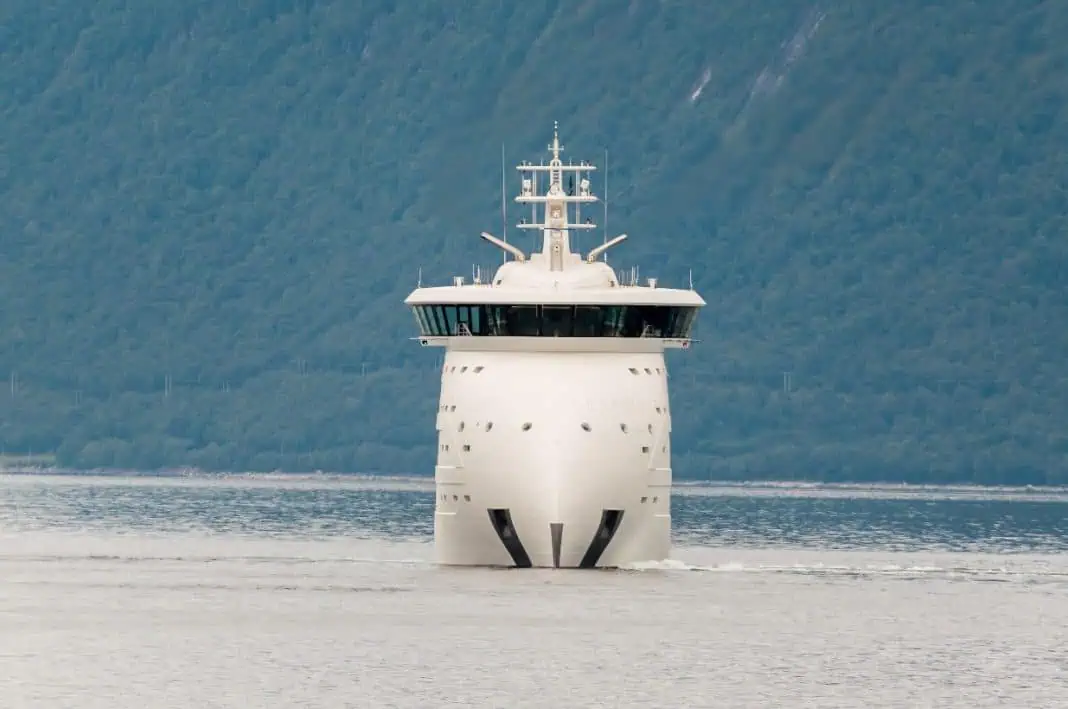Nowadays an increasing number of ships are sailing fully electric or on hybrid propulsion to reduce emissions, noise and fuel consumption. Consultants of DNV and RH Marine cooperate to determine which battery systems are suitable for which maritime applications and how to install them safely on board.
In vulnerable areas, such as the poles or nature reserves, quiet and zero-emission sailing is increasingly mandatory. That is why a hybrid power package has almost become the standard in the yacht building industry, especially for superyachts. In addition, an increasing number of countries are imposing strict emission requirements for incoming vessels. For now, broader requirements apply in international waters, but the International Maritime Organization (IMO) is committed to reduce the total CO2-emissions of the international maritime industry towards a 40% reduction in 2030 and 70% in 2050.
Minimal energy loss with electric sailing
“Electric sailing is the proper solution to meet these requirements and regulations, and saves fuel while doing this. Batteries enable you to temporarily store a lot of energy. In addition, the loss of energy when converted to electric power is considerably lower when compared to a diesel generator. The energy loss of a battery energy storage system is approx. 15%-20% and therefore more efficient than the conversion of fuel to electric power with an energy loss of approx. 65%”, say Senior Consultant Ronald Dingemanse of RH Marine and Principal Consultant Energy Storage Jos van der Burgt of DNV.
Nice-to-have becomes must-have
Batteries come in all shapes and sizes. Since the invention of the lighter and stronger lithium-ion battery, volume and weight were significantly reduced and batteries were applied for large-scale energy storage. RH Marine is equipping more and more yachts with battery packs and a hybrid propulsion. This year, the system integrator received orders for seven superyachts to be supplied with a hybrid power package. “Yacht owners like to be the first to have this type of technology. That certainly plays a role. But you notice that quiet and low-emission sailing and fuel savings have also become increasingly important. Before, a hybrid package was ‘nice-to-have’, now it’s a ‘must-have’,” says Dingemanse.
Cooperation with DNV
Classification and consultancy firm DNV was involved at an early stage in the deployment of electric ferries and buses in its home country, Norway. Thus it gained experience in battery technology and became one of the world’s leading companies in the field of independent energy advice. In its collaboration with RH Marine, DNV contributes a great deal of expertise about different battery chemistries and the technical advantages and disadvantages of the different types. For example, the two companies previously conducted a study for the Netherlands Ministry of Defense, determining the most applicable battery technology for new frigates.
Knowledge of submarine propulsion
The origin of RH Marine’s experience in electrical and hybrid propulsion systems lies in its long lasting history of submarine electrical design. Developing and delivering electrical systems and battery packs for submarines, to operate covertly and silently, provides today’s essential knowledge and experience to apply similar technologies in other maritime sectors.
Optimal sailing profile
“We want to achieve the most optimal sailing profile,” says Dingemanse. RH Marine’s smart energy management system (EMS) determines the most efficient power consumption by calculating how much energy the generators have to supply, how much power is returned to other functions on board and how much is stored in the batteries. The first question DNV asks RH Marine is how the batteries are used in the vessels operational mode. Is it purely electric sailing? Can it charge on land? Or are the batteries recharged by a generator while sailing? Van der Burgt: “We look at the technical advantages and disadvantages of a specific type of battery compared to the operational profile. A yacht crossing the ocean won’t make it on batteries alone. A ferry can often charge ashore and perhaps sail fully electrically. For yachts, the solution lies mainly in hybrid power packages.”












